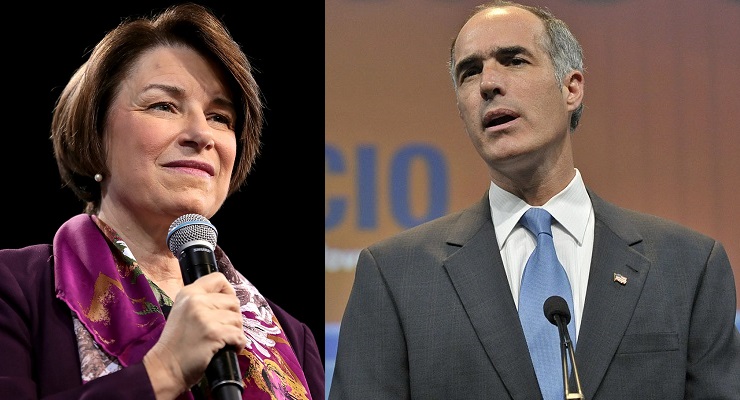
The article appears in Bradfordera:
On Thursday, U.S. Sens, Bob Casey, D-Pa., ranking member of the U.S. Senate Special Committee on Aging, and Amy Klobuchar, D-Minn., ranking member of the U.S. Senate Committee on Rules and Administration, introduced the Accessible Voting Act, which would support state and local efforts to improve voter accessibility and remove barriers to voting.
In the 2016 general election, 16 million votes, representing 11.5 percent of the total votes, were cast by people with disabilities. However, a GAO study found that only 17 percent of the polling places it examined during the 2016 election were fully accessible. As the baby boomer population continues to age, these barriers are likely to adversely impact even more Americans.
“The right to vote is one of the fundamental pillars of American democracy, but that right is under threat due to barriers that prevent or make it hard for older Americans and people with disabilities to cast their ballots,” said Casey. “The Accessible Voting Act would ensure the full process of voting — from registering to vote, to casting a ballot in person or by mail — is open and accessible for everyone. Congress should be doing everything in its power to strengthen voting access for seniors and people with disabilities.”
Klobuchar agreed.
“The Accessible Voting Act would help ensure that we remove barriers to voting for citizens with disabilities, the elderly, Native Americans, and those with limited English proficiency,” she said. “Our democracy works best when all citizens can make their voices heard at the ballot box.”
Pennsylvania Gov. Tom Wolf spoke in favor of the bill as well.
“The strength of a democracy rests on voters’ ability to cast their ballots, and the Accessible Voting Act makes great strides in helping people participate in our democracy,” said Wolf. “It is our responsibility as elected officials to remove barriers for our constituents whenever possible.”
Leave a Reply